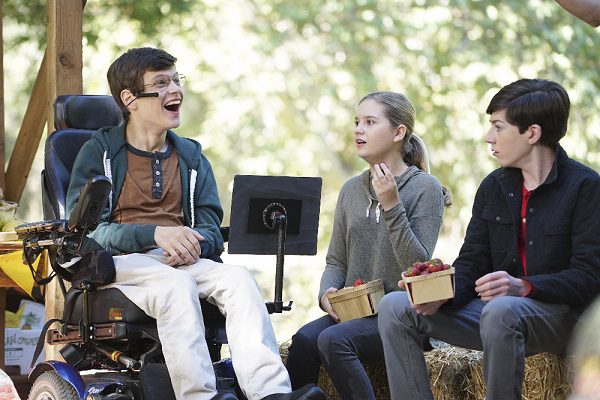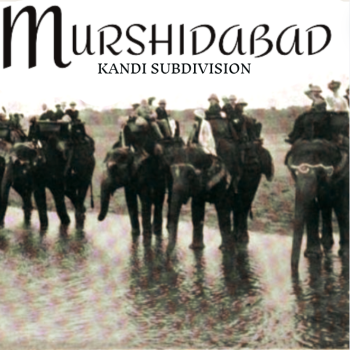
MICAH FOWLER, KYLA KENEDY, MASON COOK
This is Day Five of the Ali Family #AutismTruths – April 5, 2017.
Dear Allies, Advocates and Friends (Autism and Otherwise),
It’s called playing the autism card, or the disability card – and often it’s not the autistic or disabled person who does it.
In Season one, episode 12 of the hit ABC sitcom “Speechless” (one of my most favorite new shows this year for its fresh, real and hilarious disability storylines covered from all aspects and angles), Ray wants to use his brother J.J. (who has cerebral palsy and is in a wheelchair) as an inspiration for an essay to win a school contest.
Because the theme, of course, is “Heroes.” Write a heart-wringing essay about his disabled brother, win a cash prize.
J.J. is none too thrilled at Ray using his disability to win a contest and refuses to give Ray permission to do so. Ray agrees and writes about Albert Einstein instead, while another student whom Ray or J.J. have never met writes an essay claiming J.J. is his hero for the contest.
The brothers are furious, as Ray explains to J.J.’s aide, Kenneth, that J.J. refuses to be “inspiration porn, which is a “portrayal of people with disabilities as one-dimensional saints who only exist to warm the hearts and open the minds of able-bodied people.”
It’s a great episode (as are “Speechless” episodes), delving into why many living with disabilities loathe being thought of as “inspirations” or “heroes,” and what it means to be a true and sincere ally and friend to the disability community.
This episode and some of our own experiences with autistic friends and allies came to my mind yesterday when I read the fast-shared article about Ziad Ahmed, a particularly savvy and bright young man (whom I’ve had the pleasure of meeting) in New Jersey, who was admitted to Stanford University on the basis of his outstanding application and one very unusual essay:
… for his answer, Ahmed — who is a senior at Princeton Day School in Princeton, New Jersey — wrote #BlackLivesMatter exactly 100 times. The risky decision paid off. On Friday, Ahmed received his acceptance letter from Stanford.
“I was actually stunned when I opened the update and saw that I was admitted,” Ahmed said in an email. “I didn’t think I would get admitted to Stanford at all, but it’s quite refreshing to see that they view my unapologetic activism as an asset rather than a liability.”
Ahmed, who positions himself as a sincere ally of #BlackLivesMatter (and has worked with various organizations on such issues), was simultaneously lauded and chastised for his acceptance. One angry commenter on Facebook said, “… out here calling yourself an ally yet reaping material rewards for black people’s articulation of struggle, I’m tired.”
To be sure, Ahmed didn’t just get into Stanford for writing #BlackLivesMatter 100 times – his accomplishments, grades and accolades had a big part in making his application stand out. And, he quickly tried to address the criticism via twitter by turning the attention back to #BlackLivesMatter organizations and tweeting,
As an ally, it is certainly not my place to speak for the movement, but I hope to use this opportunity to direct attention to it. #BLM
— Ziad Ahmed (@ziadtheactivist) April 4, 2017
Here’s the thing – I know of two people who have asked my (and D’s) permission to write about him for applications for scholarships or college entrance essays. These are genuine, wonderful folks who have worked with D as a care giver, therapist or a peer buddy. Sincere allies to D and to the autism community in general. And, I freely gave my consent. There have been others who have written about D who didn’t seek his or my permission to do so for a variety of gains and purposes.
You can be as forthcoming and sincere in your support and intentions as possible, but if you are using your allyship or relationship with someone whose struggles are not yours to achieve or get something – then you better own it. I’m not saying it’s wrong to do so, especially if you have discussed with the community or person you are writing about.
I’m just saying you must recognize that. I believe Ziad and the friends who wrote about D will go on to do things for the #BlackLivesMatter and autism communities that they wrote (or just said 100 times) about. But, you must acknowledge that you’re playing the game for a benefit.
Dear allies, friends and advocates – I just want you to understand this. In writing or speaking or using a community or a person as an example to achieve something, you must understand that the people and communities you wrote about won’t receive the same benefit.
We call it playing the autism card. I have no qualms in D playing it – hell, he can do whatever he wants — or even us as his family and closest supporters and loved ones living this life in proximity to him.
But just own it.
With love,
Dilshad
















